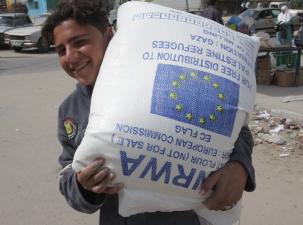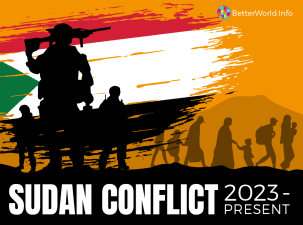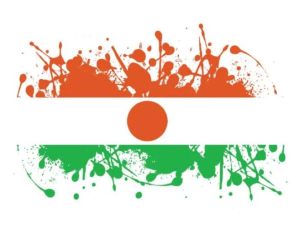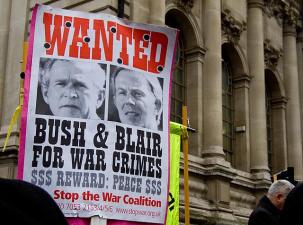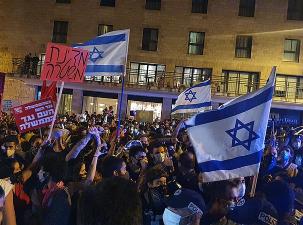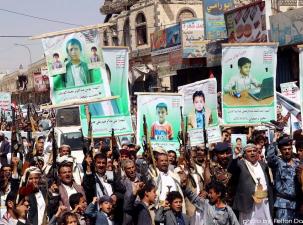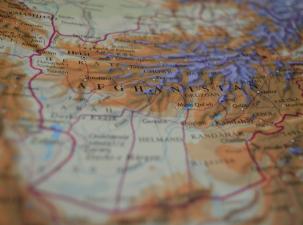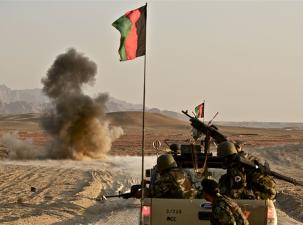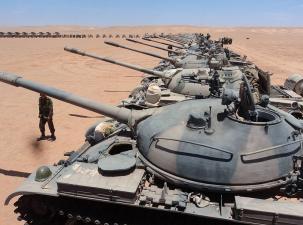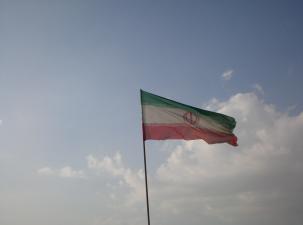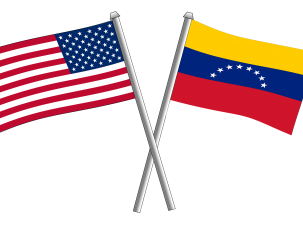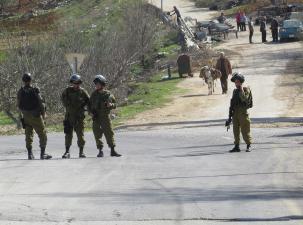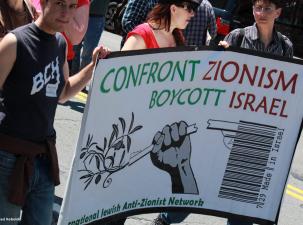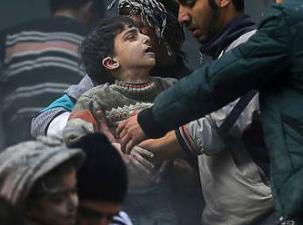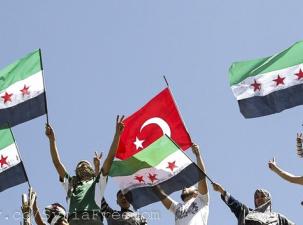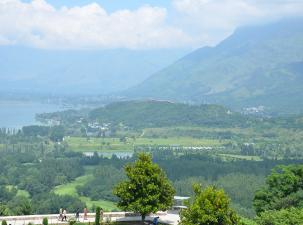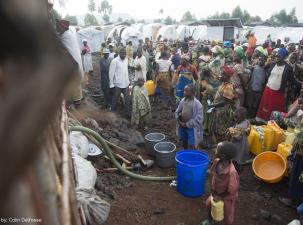Conflict Regions
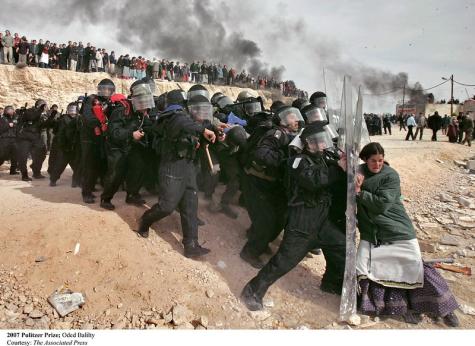
CONFLICT REGIONS Guide
Devastatingly, 2 billion people are currently living in areas with violent conflict - the equivalent of one quarter of the human population. Despite the horrifying wars of the past, humanity and it's leaders never seems to learn its lesson. The world is currently experiencing the highest number of conflicts since 1945 – the end of WWII.
Conflict is driven by complex political, social, religious, and discriminatory systems. It is fuelled by ignorance, hate, state-controlled media, weak democracy, greed and corruption. Citizens are always the losers in war.
Better World Info provides an excellent window into the worlds past and present conflicts. This ➡️ platform on violent and armed conflict monitors the situation in over 30 countries, and provides 35,000 links to vital resources. Make sure to check out our general info section where you can find our top selection of organisations, campaigns, blogs, reports, and other useful resources on conflict zones around the world.
Discover excellent sources of information on related topics such as the military, nuclear disarmament, peace, fragile states, politics, the global refugee and migrant crisis, war crimes and crimes against humanity.
What are the Humanitarian Consequences of War?
During times of conflict, human rights and social needs are forgotten. Arms companies and defence industries generate windfall profits, and military budgets become bloated beyond reason - all at the expense of taxpayers.
In 2021, the world military budget blew past the $2 trillion mark for the first time ever. In 2022, the defence expenditure for NATO members was approximately $1.2 trillion - more than half of global military spending!
Meanwhile the U.S. is suffering with rampant inequality, poverty, national debt, and a multitude of other social issues. The UK is grappling with all time high levels of inflation, an economic crisis, a failing healthcare system, cruel austerity measures, and nationwide public sector strikes.
Levels of global hunger have reached new highs, worsened by the global food crisis, and supply chain issues. Foreign aid and humanitarian assistance are failing and remain vastly underfunded despite the unprecedented need for help.

Citizens living in conflict regions are left surrounded by violence, death, and fear. They are forced to leave their homes resulting in millions of war refugees who endure perilous migrant routes, only to find deplorable conditions in border camps once they arrive.
89.3 million people globally have been forcibly displaced as a direct result of conflict, violence or rights violations. In Syria alone, 65% of the population, a massive 12 million people, are either internally displaced, or living abroad as refugees.
Education and employment become impossible. Assets become worthless, and health care systems are crippled. Water supplies become non-existent, farming systems collapse, and food supplies are cut off.
Children in conflict become separated from their families, lose their homes, and are torn away from their schools and universities. As a vulnerable sector of society, children experience lasting physical and emotional trauma, and suffer long-term consequences on their development and growth - a lost generation. As many as 300,000 children currently are believed to be directly involved in war as child soldiers.
In times of war, women’s rights are always forgotten. They suffer at the hands of soldiers, even becoming victims of rape. Ultimately, quality of life for everyone is reduced to a point where basic needs cannot be met, neither internally, nor through aid channels.
The humanitarian costs of war far can never be justified. No side ever truly wins a war if the sacrifice is 1000s of casualties and injured, a nation left traumatised, and total destruction of vital civilian infrastructure.
Where are the World's Worst Conflicts?
-
Conflict in The Middle East and North Africa
45 armed conflicts are currently taking place in this part of the world making it the most affected region. Now in its 10th year of conflict, Syria is suffering one of the worst humanitarian crises in the world. Learn more about the 2011 uprising, the armed insurgency that followed, the global proxy war, and the Assad regime.

The Israeli – Palestinian conflict is one of the most prolonged conflicts witnessed by the world. Citizens have endured conflict since 1948 after the creation of the State of Israel - igniting the first Arab-Israeli war. Ruled by the militant group Hamas, the Gaza Strip has been plagued by Israeli bombing and tight restrictions. Find guides on ceasefire initiatives, human rights violations, protests, West Bank annexation, the troubled peace process, and much more.
The Yemeni Civil War is not only one of the most under reported, but also now the world's worst humanitarian disaster ever. It began back in 2014 when Houthi insurgents took over the country's capitol. Relentless bombing by Saudi Arabia and the U.S. has only escalated tensions and led to almost 250,000 fatalities. An ongoing economic crisis and famine is crippling the country further and stretching its citizens to the absolute brink.
Lebanon is currently undergoing a political and economic crisis, which has driven thousands to the streets in protest of rising food prices, fuel shortages, blackouts, and poor management of the Covid-19 pandemic. Further exasperated by the Beirut Port Blast in 2020, civil unrest is expected to continue until major reforms are made. Tensions are also simmering on the Israel border as rockets were recently fired from Lebanon into Northern Israel in the beginning of a storm that seems to be gathering over many Middle Eastern countries.
For further reading on the region find extensive categories on the conflict in Iran where extreme governmental repression has led to widespread protests, and also Libya, which has been plagued by military and political instability since the Arab Spring protests of 2011.
Be sure to check out our country-by-country political guides to the complex situations in the Middle East and North Africa.
-
Conflicts in Africa
35 armed conflicts are currently taking place on the African continent. Increasing tensions being felt all over this region. In second place for the most armed conflicts, we are witnessing coups, military takeovers, and daily violence become the norm in many African countries.
Find an in-depth guide to the civil war in Tigray, where power struggles, protests, calls for political reform, and concerns over human rights and democracy led to military confrontation. In the deadliest war of the 21st century, 600,000 lives were lost. An acute famine is now affecting 350,000 people.
The Central African Republic has witnessed decades of violence and political instability. Learn about Muslim-Chrisitan clashes, attempts at disarmament, armed groups, lawlessness, peace endeavours, and the resulting economic fallout.
The Democratic Republic of the Congo faces similar issues with multiple armed groups engaged in conflicts over both territorial and resource control. Activity from the M23 rebels seems to be spiralling, and upcoming elections suggest more violence to come. Find further information on the Kivu conflict, child soldiers, violence against women, and human rights implications.
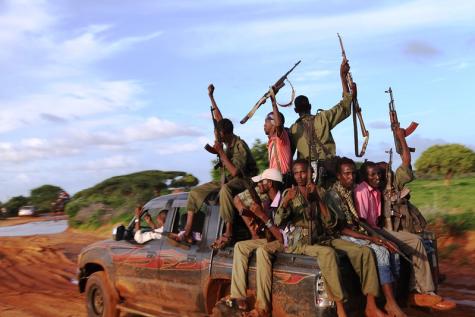
The civil war in Somalia is one of Africa’s oldest wars. 20 years of violence has left Somalians fighting for survival. Caught between severe drought and conflict in a dangerous and unstable situation, further worsened by Islamist terrorist group Al-Shabab. They control large parts of the country and regularly carry out lethal attacks on civilians and peace workers, they battle to overthrow the UN-backed Somali government.
Since its separation from now South Sudan in 2011, Sudan has suffered relentless conflict and instability comprising of two civil wars and a lengthy ongoing war in Darfur. Currently ruled under militant leader al-Burhan after a coup in 2019, we are now witnessing a power struggle which has exacerbated widespread violence, massive displacement, and huge ariel bombing campaigns. Learn about the brutal genocide, the Darfur war crimes trials, rebels, protests, and much more.
Years of political struggles in South Sudan have been dominated by a power play between Kiir and Machar. Violence has massively interfered with agricultural production and resulted in large scale food insecurity. Armed insurgency The National Salvation Front possess a new threat as fragile peace agreements become unravelled.
Find even more information on the complex situations in the Western Sahara, Mali, and Senegal, and be sure to check out our political guides to all African countries here.
-
Conflicts in Asia
21 armed conflicts are currently taking place in Asia. Violence resurged in Myanmar after the brutally violent 2021 coup d'état where power was seized from the elected government of Aung San Suu Kyi. Pro-democracy activists clashed with the ruling junta resulting in ariel bombings and destruction of civilian infrastructure in an attempt to secure military control. Martial law has spread to 47 townships, and violence has escalated in ethnic areas.
Years of persecution of the Rohingya people has led to almost one million refugees living in camps in Bangladesh. They endure deplorable living situations and rely entirely on humanitarian aid for their survival.
Territorial disputes over Kashmir between Pakistan and India are still ongoing despite a 2003 cease-fire. In one of the most militarised places on Earth, human rights abuses, unrest, disappearances, terrorism, and violent protests are commonplace.
Learn more about the situation in Pakistan and India, as well as the rise in Hindu nationalism under Modi’s government and the resulting Muslim discrimination and increasing marginalisation of the community.

Find extensive coverage of the U.S. invasions of Iraq and Afghanistan, both offer complete background knowledge, ongoing developments, and analysis of the forever war on terrorism. Follow the Taliban takeover as they continue their assault on women's rights and reinstate many of their harsh penalties from previous rule. Discover information on international isolation, protests, diplomatic solutions, elections, human rights, sanctions, and voices for peace in both regions.
Food for thought - $8 trillion was spent by the US military on the Afghan war in 20 years. This is $5 trillion more than the annual U.S. Federal Budget. It is DOUBLE the global annual budget needed to meet the Sustainable Development Goals AND the Global Aid Budget (OECD) for 50 years - combined!
Now locked in an arms race after years of stalemate, tensions between North Korea and South Korea appear to be escalating. North Korea has ramped up their frequency of missile tests, and with denuclearization no longer on the table, South Korea has responded with new sanctions targeting weapons programmes, and vowed a full-scale military response with backing from its allies in Japan and the U.S.
Better World Info is also closely monitoring the situation regarding China. With a shared mutual distrust of the West, and expanding NATO presence in the East, Russia and China have recommitted to a close partnership. You can learn more about the Russian Invasion of Ukraine in our European category.
Chinas ongoing dispute with Taiwan is also causing international ripples. Independent since 1949, Taiwan has its own democratic government, but fails to maintain diplomat ties with many countries, it is unable to join the UN and most international organisations.
China has always viewed Taiwan as part of its territory, and eventually aims to unify Taiwan with the mainland – with force if necessary. The U.S. has a close but unofficial relationship with the island, and despite pressure from China, continues to sell weapons to the Taiwanese military. Experts fear that the U.S. and China could go to war over Taiwan independence.

With relations between China and the U.S. at an all-time low, and increasing military build-up from both sides, experts have labelled it the new cold war. Factors at play include China’s oppression of the Uyghur population, harsh U.S. tariffs on Chinese imports, a diplomatic boycott on the Beijing Olympics, Pelosi’s visit to Taiwan, restrictions on U.S. tech exports derailing China’s chip industry, and recently the suspected Chinese spy balloons floating over U.S. territory.
With so many complex situations unravelling in this part of the world, be sure to check out our political guides to the situations in Southeast Asia and Central Asia.
-
Conflicts in Europe
7 armed conflicts are currently taking place in Europe, the largest and most devastating of which is the Russian war in Ukraine. Explore our unique peace guide which contains over 10,000 resources featuring extensive topics on NATO expansion, Western weapon exports into Ukraine, global economic consequences including Russian gas and oil, sanctions, war crimes, human rights, the resulting refugee crisis, nuclear war threats, and much more.
We highly recommend checking out our voices for peace and peace negotiations categories, as well as our essential viewing and reading sections for reliable critical news and analysis.
On the border between Europe and Asia, Armenia has been locked in a bitter conflict with Azerbaijan over the Nagorno Karabakh region since 1988. Incidents between the two territories were a regular occurrence until 2020 when all-out war broke out. Around 5,000 soldiers and civilians were killed before a ceasefire brokered by Russia was implemented. Currently under control by Azerbaijan, localised but deadly border clashes are still commonplace.
Be sure to check out our excellent country-by-country political guides covering the European Union, including separate categories for EU members and non-EU states.
Better World Info’s Afterthoughts on Conflict Regions
The costs of war, financial and humanitarian, far exceed that of any potential gain by ‘winning’. The cost of peaceful conflict resolution leading to long term sustainable peace is a drop in the ocean when compared to the trillions wasted on gigantic military budgets.
Bottom line - Wars never bring peace. Statistically, nonviolent resolutions have a success rate five times higher than violent ones. As UN Secretary- General Ban Ki-Moon said, “The world is over-armed, and peace is under-funded.”
Levels of conflict are at an all-time high, and climate change is becoming an increasing driver. Violent disputes arise over land, depleting resources, and agricultural boundaries. Of the 25 countries most vulnerable to climate change, 14 are plagued with conflict. These countries also tend to be some of the poorest, lack strong governance, and are less able to adapt to a changing climate.
Add the fact that military emissions play a significant role in the generation of greenhouse gases accelerating climate change, not to mention the colossal environmental damage caused by destructive war machines. Militaries conveniently, are largely spared from emissions reporting so the data is spotty, and mostly ignored by the media, but estimates are around 5% of total global emissions.
The world is on the brink of a global nuclear disaster, with the very real potential to wipe out humankind. It is of upmost importance that we step back from this brink by implementing a total nuclear weapon ban, including stockpiling and posturing, a feat which will only be achieved through global cooperation.
Better World Info stands as a voice for peace, a platform for truth, and fights against military propaganda and misleading enemy images. Open dialogue, diplomatic negotiations, and de-escalation should always be sought first.
We must shift focus and funding to peacebuilding.
Instead of supporting the multi-billion-dollar arms industry, and bloated military budgets we support the peace movement, increased peace funding, development aid, and investment in social projects – to create a better world for everyone.
For our German speakers, be sure to check out our German site Bessere Welt Info and their excellent category on Konfliktregionen.
Author: Rachael Mellor, 20.04.23 licensed under CC BY-ND 4.0
For further reading on Conflict Regions see below ⬇️
Info on Conflict Regions
- Our Links[2]
- General Info[140]
- Ethnic Conflicts & Nationalism as a disease[63]
- Abkhazia[36]
- AFGHANISTAN[2910]
- Azawad (Mali)[26]
- BURMA
- Catalonia[30]
- Chechnya[121]
- Congo (DRC)[4]
- Cyprus[47]
- Guatemala & Belize[30]
- IRAN[5173]
- IRAQ[3753]
- ISRAEL & Palestine[28044]
- Northern Ireland[220]
- KOREA
- Kashmir[169]
- Kosovo[516]
- Kurdistan[420]
- Lebanon - CR[877]
- LIBYA
- Nagorno-Karabakh[237]
- Sri Lanka / Tamil[146]
- Pakistan[50]
- Western Sahara[110]
- Somalia[84]
- SUDAN / Darfur[3064]
- SYRIA[3]
- Taiwan[219]
- TIGRAY / Ethiopia[1]
- East Timor
- UKRAINE[1]
- YEMEN[78]
- Ex Yugoslavia[71]
- WAR CRIMES[198]
Hot Topics
Twitter list
Tweets by @BetterWorldInfo/lists/conflict-regions
Hero of the Month
Shireen Abu Akleh
The Al Jazeera journalist reported on the occupation of Palestine for two decades, making her one of the region's best-known journalists. Shireen was killed in the line of duty while reporting on a raid in the West Bank city of Jenin; the shot that killed her was presumably fired by the Israeli Defence Forces. Thousands gathered at Abu Akleh's funeral procession in one of the largest public demonstrations in recent years, and many, including the US government, have called for a transparent investigation into the killing.

Featured Organisation of the Month
World Beyond War
A global non-violent movement to end war and establish sustainable peace. It was founded in January 2014, by David Hartsough and David Swanson, with the aim of finding a way to transition to a global system supported by international law and collaboration between countries, rather than opting for violent conflicts. WBW's work includes education to debunk myths about war, creation of organising resources, global campaigning and non-violent activism.

Featured Online Resource of the Month
Insight on Conflict
Provides information on peacebuilding organisations. Although they make a real impact, their important work is often ignored due to lack of awareness and information. You can find out who local peacebuilders are, what they do and how to get in touch with them.


